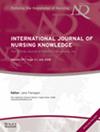The effect of the mind–body intervention on depression in people with cognitive impairment: A systematic review and meta-analysis
Abstract
Purpose
To assess the effect of the mind–body intervention on depression in people with cognitive impairment.
Methods
Five databases (PubMed, Web of Science, Embase, Cochrane Library, and PsycINFO) were systematically searched, the Cochrane Collaboration's tool was used for quality assessment, and subgroup analyses were performed according to participant types, intervention types, and duration of interventions.
Findings
A total of 16 randomized controlled trials were included, two of which were unable to obtain complete data and one had high heterogeneity. The overall meta-analysis of 13 articles showed that the mind–body intervention was not effective in promoting depression in individuals with cognitive impairment (standardized mean difference [SMD] = −0.08; 95% confidence interval (CI) [−0.27, 0.11]; p = 0.419; I2 = 52.4%, 13 studies, 1406 participants) compared with the control group. Subgroup analysis showed that depression was significantly improved in the dementia subgroup after the mind–body intervention compared to the control group (SMD = −0.31; 95% CI [−0.57, −0.05]; p = 0.021. I2 = 29.2%, six studies, 399 participants), while no significant changes were observed in the mild cognitive impairment subgroup. Among different intervention types and durations, no intervention was found to have a significant positive effect on depression.
Conclusion
The mind–body intervention is an effective intervention for improving depression in people with dementia, but its effect is not significant in individuals with overall cognitive impairment. Follow-up high-quality studies are needed to further verify the effects of different mind–body interventions on depression in people with different severities of cognitive impairment.
Implications for Nursing Practice: By proving the effectiveness of the mind–body intervention in improving depression in people with dementia, it will provide evidence for the further development and improvement of the mode and content of the mind–body intervention and increase the attention and support of the healthcare system and society for the mind–body intervention.

 求助内容:
求助内容: 应助结果提醒方式:
应助结果提醒方式:


